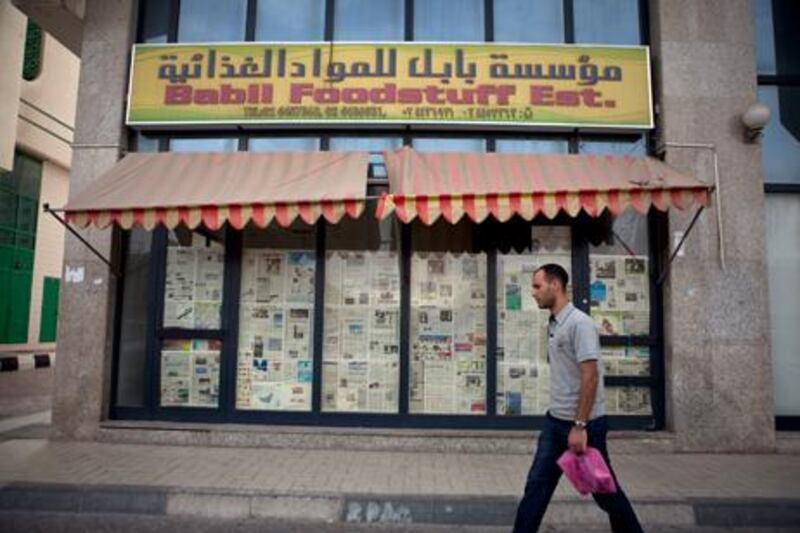ABU DHABI // The sign that hung above Ameer Ali Grocery has gone. Only the bare shelves within hint at the business that was once there.
Further along the street in the Mushrif Water Tank area - known locally as Tanker Mai - is the premises that used to be Power Grocery. But only people familiar with this dusty, ramshackle part of the city would know - its sign, too, has been removed, and there is no external trace of the shop that used to be here.
A short stroll on, Shafiqa Grocery still has its sign up, but its doors are locked.
The nearby Malabar Grocery offers some hope of a resurgence. It is closed for now, but its owner says it will reopen in about two months, after a refurbishment that he expects to set him back about Dh122,000.
On this block alone, 26 groceries are now closed, almost all victims of the cull by Abu Dhabi Food Control Authority (ADFCA), which forced them to shut over the new year for failing to comply with new hygiene and storage rules.
ADFCA has not said how many of the emirate's 1,300 groceries have closed, but the number runs into the hundreds. The move has left some blocks, particularly in older areas such as Tanker Mai, with barely any retail outlets.
While new groceries are to open, it is not clear whether the chains will choose to set up in areas such as Tanker Mai or focus on the newer, more affluent areas.
View The impact of new grocery rules on Tanker Mai shops in a larger map
Some of the shops in Tanker Mai will doubtless reopen. A walk around the block showed signs of impending renovation in about a third of the shuttered stores. In others, owners sat behind ad-hoc curtains, amid the bare shelves that were once their livelihood.
Al Wasit grocery, near Delma Street, is among those to have closed. Jasim Mohammed, 49, a regular customer who works nearby, now has to drive to Lulu at Al Wahda Mall for water.
"I used to come to this grocery every day," says the project manager for a construction company. "The government needs to open shops in every location where there was a grocery. I think this will happen but the groceries closed at the same time and this is our complaint."
Sharafudheen Hamza, a former employee of Al Wasit grocery, says the owner was stymied by the Dh100,000 bill to meet the new regulations.
"He didn't have it. He is going to move to Mussaffah maybe, and maybe open a cosmetic or vegetable shop," says the 22-year-old Indian. "Many groceries have closed in this area, it's the same problem.
"It's sad. Other people who run the groceries are going home to India.
"It has changed the area. The area is quiet now and there are less people around."
Nasar Muthu, also from India, now walks to Al Wahda Mall and back to shop at Lulu - an hour-long round trip. The grocery he visited used to bill him once a month for his food, after he had been paid.
"It's hard to buy food when you need it when you need cash every time," says the 22-year-old draughtsman.
Not all food outlets are covered by the new rules and the area is still dotted with refreshment cafes and greengrocers.
Thana Supermarket remains open and its owner, Basheer Kasaragod, from India, says it will close in a month for a Dh120,000 refurbishment.
Fathima Supermarket is also open, along with Millennium General Market where Mehrdad Alian, from Iran, shops.
"Millennium do not deliver," he complains. "If someone is at home with a child, what do they do?"
Jamshed Ansari shops there, too. But the 28-year-old Pakistani says it is not as convenient as the grocery he used to use because it shuts at 11pm - 30 minutes after his shift as a technician at a computer shop ends.
"Before the grocery finished at 12pm and if I needed anything I could get it from there," he says. "The groceries were an important part of the community - like a family. We are really sad. I went to two or three groceries before they shut and said to them, 'it's really bad'."






